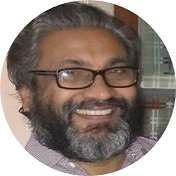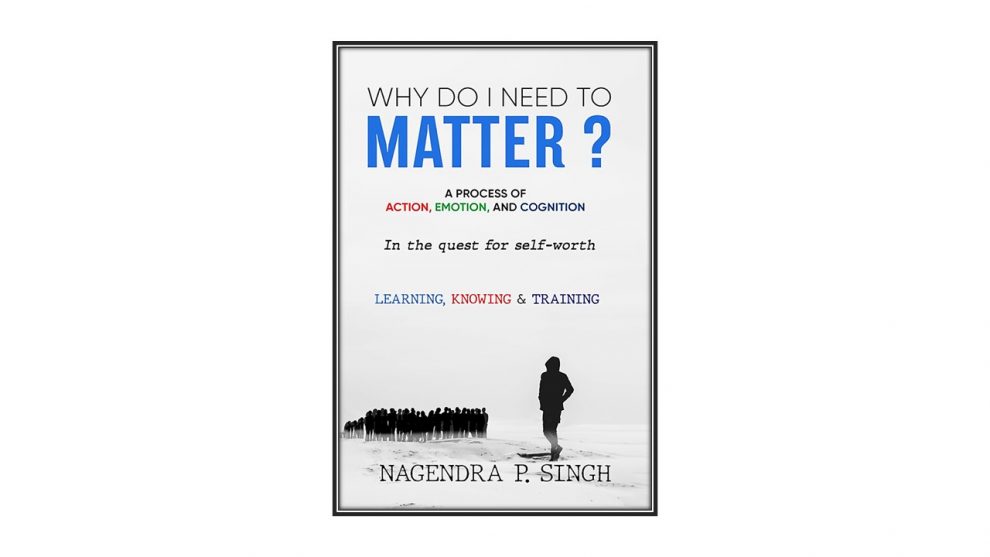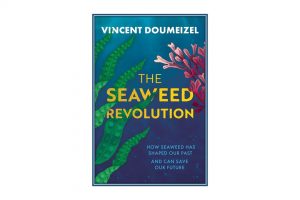Nagendra P Singh (2023)
Evincepub Publishing
ISBN:978-93-5673-673-3
Pages: 211
INR: 430
The role of a trainer is to ensure that knowledge and skills are imparted to participants in line with the desired learning outcomes, whereas the role of a facilitator is to pave the way for participants to gain the experience to generate knowledge on their own with the help of resources provided by the facilitator. However, in training both these terms are used interchangeably.
This book – Why do I Need to Matter? – presents a holistic view of the trainer system, because they have immense power at their command. The author, Dr Nagendra Singh, reiterates that the role of a facilitator continues to deal with the underlying issue of identity, authority and the power of being as a person in each role. The sense of ‘mattering’ in facilitation is deep rooted in their unresolved issues of authority and power in different roles and relationships as group process facilitators.
In the field of training, we come across many so-called master trainers who get themselves wrapped up in self- confidence with invisible arrogance and false pride who are clueless about the feelings of the trainees or of self. They live in a ‘I know it all’ zone. Dr Singh’s book works as an eye opener for them to feel the need for sensitivity and clarity of human processes in group facilitation.
In his Foreword to the book, Prof. TV Rao, former IIM-A Professor, connects what Dr. Singh discusses in this book to the fourth level of Maslow’s hierarchy of needs (‘esteem’ or need for significance). The core theme of the book explains various dynamics of the ‘need for significance’ and what T-group trainers, facilitators and applied behavioural scientists attempt in order to help the trainees gain this significance through various interventions.
The book begins by explaining the duality of ‘content and process’ in a learning environment. Organisations view it as a dichotomy, which is unfortunate, for it cannot be seen separately as both are closely inter-related and interdependent. The emphasis of the content is on ‘what is to be done’ rather than on ‘how things are done’. There could be several levels of process clarity that calls for close understanding during group work. The processes could be of various types: existential (person-centric), interpersonal empathetic, role coping, group evolution, intergroup collaborative, organizational decision making, environmental, community social awareness, and value process. The author emphasizes that the competencies of the facilitators can be enhanced through sensitivity and clarity on all these human processes.
The book is divided into seven chapters under three sections. The first section of the book deals with the self-exploration process of a person at an existential level in an organization. In Chapter 1 titled ‘Do I need to matter?’, Dr Singh asserts that the sense of mattering can be used as a powerful tool to inspire, enable and motivate performance orientation and one’s urge towards excellence. Human process centric professional bodies attempt to examine the self at three levels – opinionated self, attitudinal self, and core self. Self-concept as a large multi-layer object embedded into an identity needs unpeeling for self-realization and awakening. Listening to one’s inner voice provokes a need to learn from various modes: feeling mode, reflective mode, analytical and doing mode. The quest for learning about oneself is central to one’s professional development.
Chapter 2 covers an exploratory study with behavioural scientists and human process trainers as respondents who had chosen to become freelancers and entrepreneurs. It was observed that process skill has never been positively associated with entrepreneurial goal setting behaviours. The dilemma of being a freelancer versus an entrepreneur was evident in the study. It also revealed that the entrepreneurial being demands a higher ability for group handling and team leadership, coping with unknowns and uncertainties with greater tolerance to ambiguities. Individuals need to matter with regard to what drives them to turn into a somebody from a nobody, because many feel restless with just being an ‘anybody’ in the workspace.
The chapter on cognitive mapping explains how it can reshape inner clarity of being. Cognitive mapping sets the foundation of learning and knowing before one indulges in training as a group facilitator. Drawing a cognitive map based on experiential learning of personal growth reflects an emotional state of being, which depicts ‘who am I’. Cognitive domination has emerged in order to understand an individual being, with emotion, cognition and action as distinct features of analysis. Each cognitive map is unique and has emotions, issues and growth as experienced by that person.
The fourth chapter presents seven cases of cognitive mapping analysis of the trainers. The cases present an account of the accumulation of knowledge, skills and wisdom in relation to sensitivity training for group facilitation. One anecdote by a trainer, “My game plan used to be highly dependent on tools and instruments with a high dose of slides and aids. I recall how difficult it used to be to sustain the long three-hour sessions with stuff in my bag unless I had some jokes and stories to support my innings. I was looking for sheer survival on many occasions in class. But the journey through process insight together with a struggle to look at my own sense of inadequacy, concluding with a search for inner acceptance, taught me to be a trainer of great worth today.” Almost all the case studies have shared a transition in the process of self-concept, moving to positive change, which is analysed and presented here.
The group process facilitation is well explained in the fifth chapter. The idea of mattering stems from one’s own perception of unresolved authority or influence in work settings. The author highlights that trainers’ style and their own self-image are the significant factors in understanding the latent dynamics of group behaviour. The process trainers pay little attention to unsettled and unresolved authority issues of the trainees. Trainers with egocentric needs must reconsider their styles. Trainers’ self-image with strong authority orientation is closely related to freedom of space extended to the learners. The anecdotes and examples given in the chapter reflect on one’s own connectedness between authority and identity, which the readers will find useful.
Chapter 6 highlights that learning to learn is one of the most critical process dimensions for facilitators if they are to exercise their styles and beliefs properly. Assumptions and beliefs of trainers matter a great deal to their styles and approaches. Learning demands that unlearning is necessary. The learning process is self-directed because we learn only when we want to. The categories based on learning styles – perceptual modality, information processing, and personality patterns – are explained in this chapter.
In the final chapter, Dr Singh stresses that the reflective journey of process trainers can make a difference and build a common bridge to work for a much wider religion of humanity in terms of love, care, bondage, togetherness, etc. Process trainers should strive to nurture collective social excellence through right human values for peace, happiness and harmony in society.
This book offers many valuable insights on the complex phenomenon of group process-based learning for personal development, and behavioural change at different levels. It offers a blend of academic, research and live case examples to explain the human process in facilitation. Dr Singh has provided a valuable direction to the concept of group facilitation process integrating Indian values and established theories. The book gives direction to the readers to discover why we need to matter in our work and social space. I feel the book will be a good read for extension professionals involved in training and development and is a valuable reminder that human processes do matter in handling group dynamics.
| Dr Nagendra P Singh holds a Doctorate in Agricultural Extension from ICAR-Indian Agricultural Research (IARI), New Delhi. He is a trainer of global repute in Applied Behavioural Science and Change Leadership. Dr Singh is the former President of the Indian Society for Applied Behavioural Science (ISABS) and Chairperson of the AIDMAT Leadership Academy. |
RM Prasad
 Dr R M Prasad is a retired Faculty from Kerala Agricultural University, who had served in KHDP and KMIP (EU funded projects in Kerala), NIRD, Hyderabad and Government of Meghalaya. Presently, he is the Vice President of Farm Care Foundation, Thrissur, Kerala, Email: drrmprasad@gmail.com
Dr R M Prasad is a retired Faculty from Kerala Agricultural University, who had served in KHDP and KMIP (EU funded projects in Kerala), NIRD, Hyderabad and Government of Meghalaya. Presently, he is the Vice President of Farm Care Foundation, Thrissur, Kerala, Email: drrmprasad@gmail.com





Add Comment